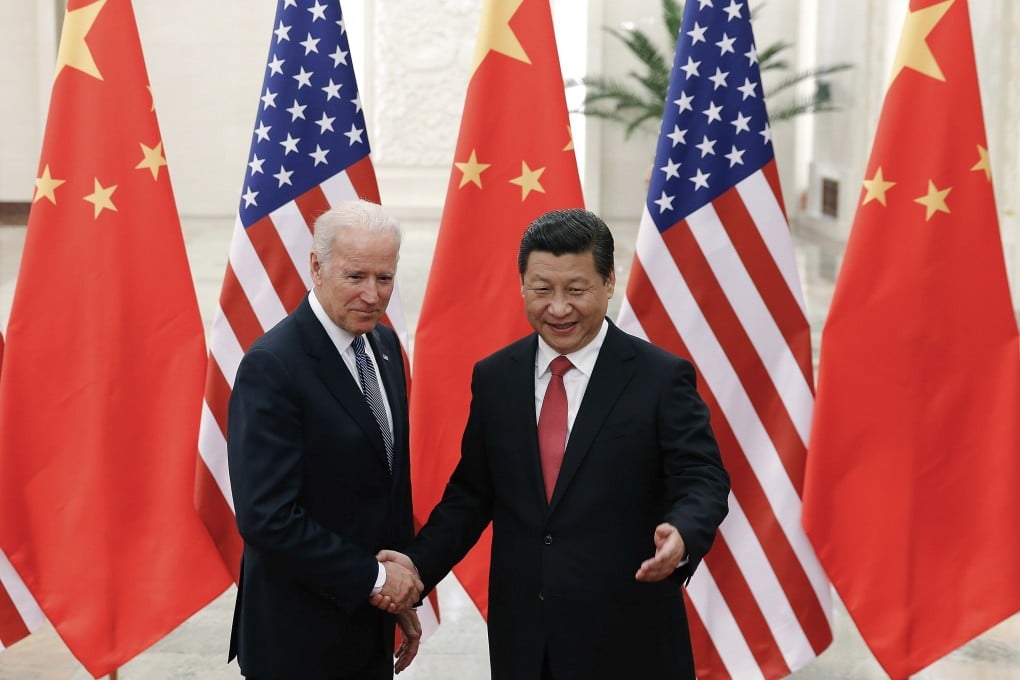Advertisement
Opinion | Could Biden’s plan for unity in the US help patch relations with China?
- Ties between Beijing and Washington frayed under Trump, but Biden’s goals and ideals are in line with some China policies in unexpected ways
- ‘Lowering the temperature’ with China will not eliminate rivalry, but there is a basis for common cause with deep historical roots as well as contemporary relevance
Reading Time:5 minutes
Why you can trust SCMP
5

It’s hardly news that relations between the United States and China deteriorated rapidly during the final months of Donald Trump’s tenure as president. As detailed in Political Science Quarterly, research shows that when the leaders of one nation acquire a negative image of another, that image tends to stick, and relations can get worse as each side exaggerates the threat posed by the other.
Beyond that, China’s political and economic power have begun to rival that of the US. Between close rivals, empathy slackens, along with deliberative thinking. Each side creates mythologies demonising the other as embodying values incompatible with its own.
In the US, for instance, we learn from an early age that democracy harks back to the Greeks, while China has always been despotic. American statesman and former president Thomas Jefferson flatly rejected the first claim, while the second is demonstrably false, but the myth continues to intensify already deep divisions between the US and China.
Adopting a similar us-versus-them posture, the Trump administration managed to divide the American electorate along racial lines. In response, President Joe Biden’s inaugural address called out the “racism, nativism, fear, and demonisation [that] have long torn [Americans] apart.”
Advertisement
Racism has contributed to the deeply divided condition of the US electorate, but we should not forget that the Trump administration’s foreign policy was as racially charged as its domestic policies – so the xenophobia dividing America today also poses obstacles for US-China cooperation on global challenges.

04:33
As Biden enters White House, world leaders express ‘relief’ and welcome ‘friend’ and ‘mate’ back
As Biden enters White House, world leaders express ‘relief’ and welcome ‘friend’ and ‘mate’ back
THE BIDEN FIX
Advertisement
Advertisement
Select Voice
Choose your listening speed
Get through articles 2x faster
1.25x
250 WPM
Slow
Average
Fast
1.25x
